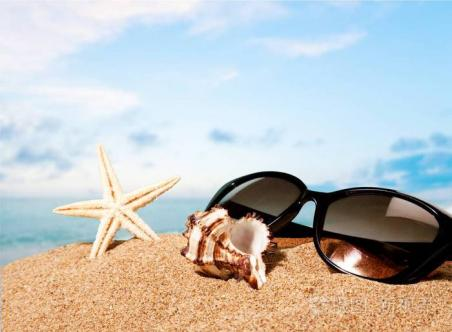Better Touch Better Business
Contact Sales at Proway safe suppliers.
I believe most of people love beach. When we are in the beach with the fabulous weather and our best friends, it can be a really relaxing time.
However ,what a pity not to be able to enjoy it on such idyllic beach. Have you ever lost something valuable like your phone,ring ,or watch while enjoying yourself on the beach? Have you ever experienced the pain of a sunburn.Have you ever known how to call for help, or how to avoid drowning? Here are some tips to keep safe in the beach.

1. Sunburn
Use sunscreen: Choose a sunscreen with SPF (Sun protection factor) and make sure it protects against UVA and UVB rays. Sunscreen should cover all parts of the body, including the face, neck, arms, and spine. Reapply regularly, especially after swimming or sweating.
Wear sunglasses: Wear sunglasses that block UVA and UVB radiation to protect your eyes and the skin around your eyes.
Also, take regular breaks in a cool place to reduce continuous exposure to the sun, stay hydrated, and watch your skin for any sunburns, such as redness, soreness, or blistering.
By taking these steps, you can minimize the risk of sunburn at the beach and protect your skin from damage.
2. Protection of personal property
In fact, protecting valuables such as mobile phones, cash, wallets, etc. on the beach is an important task, as these items are easily damaged by sea water, sand, or sunlight. Here are some tips to help you protect your valuables at the beach:
Use a beach safe: Put your phone, cash, jewelry and credit card in a specially designed beach safe. It has an IPX6 waterproof rating, which can effectively prevent moisture and sand intrusion and protect your belongings, especially cigarettes.
This style of beach is safe and can be tethered somewhere. Such as parasols, lounge chairs and so on. Passwords can be set themselves, easy to set, but hard to crack.
Try to avoid leaving valuables unattended. Avoid displaying valuables in public, such as large amounts of cash, expensive necklaces, etc. Fully enclosed and opaque beach safes can avoid excessive display to attract others' attention and reduce the risk of theft.
3. Avoid drinking
Alcohol affects the functioning of the brain, including judgment, coordination and reaction time. In water activities, clear thinking and quick reflexes are required to ensure the safety of yourself and others. Drinking alcohol may make you more vulnerable to injury or unable to cope with emergencies.
The effects of alcohol can lead to loss of balance, disorientation and fatigue, factors that increase the risk of a drowning accident while in the water. In addition, alcohol can lead to misjudgments about danger, making it easier for a person to get into dangerous waters.
Therefore, in order to ensure the safety and enjoyment of water activities, it is best to avoid drinking alcohol during the event. If you choose to drink alcohol during water activities, be sure to keep exercising and do so in a situation where you can safely control your behavior.
4. Pay attention to the position of children!
A lost child is a worrying situation, especially at a beach in a complex environment. It is best for children to travel with adults, especially at the beach when the crowds are hot. Adults can better observe and control children's actions.
Choose a visible marker on the beach and tell children that if they get lost, they can return to the marker and wait near it. If you are unable to locate the child quickly, report it immediately to the police or lifeguard on the beach. They usually offer help and start the search process.
5. Wear bright colors!
When visiting the beach, try to choose brightly colored clothes like blue or red. This is easy to leave an impression on others, if unfortunately lost or in distress, can also be more easily noticed, so as to better call for help.
6. How to call for help?
If a drowning accident occurs while playing at the beach, quick and correct distress action is essential.
1) Stay calm: When you get into trouble underwater, staying calm is key. Try to keep your head above the water and slow your breathing to conserve energy.
2) Find tools: If there are lifeguards, lifeboats, or other rescue tools around, try to swim towards them, or try to keep yourself in their line of sight.
3) Look for floating objects: If there are floating objects around (e.g. life buoy, driftwood), grab them quickly to maintain buoyancy. This helps reduce the burden of body force and makes it easier for you to stay buoyant underwater.
4) Remember that if you or someone else is involved in a drowning accident, it is most important to seek professional emergency assistance. There are usually lifeguards and emergency rescue teams on the coast who are professionally trained to provide timely assistance.
By following these tips, you can minimize the risk of a possible accident at the beach and ensure a safe and enjoyable time at the seaside.
Copyright © 2025 Proway Industries co ltd. | All Rights Reserved